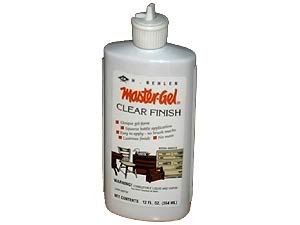also reffered to as french polish
This is what I do on some of mine.
You just need alchol, oil and shellac. Basically you wipe on a base of shellac all in same direction, thin coat. Then use fine 0000 steelwool to take out any runs. Then the fun beguins. Use old teeshirt material or wool for the wad, the middle part, wrap a single layer of tee shirt material around this and pull it tight. Then you apply shellac to wet the pad, vary sparingly about 10-12 drops. Now you rub in a circular or figure eight pattern on the finish. Press fairly hard, not enought to crack the uke! while rubbing. The finish drys almost instantly, when you feel the pad is starting sticking, put on a drop of mineral oil. keep on doing this. waiting 1/2 hr or so between rubbing sessions
, soon you will se a nice shiny uke. to dull it to satin just use a light rubbing of steel wool.
I now use minwax sanding as the base coat and french polish over it or water base poly.
The nice thing about french polish is it is thin, the coats blend into one as you apply it, very easy to fix.
There are several websites giving details with pictures,
main problem takes practice and problems applying in high humidity.
Before the 1900's all Martins were french polished, but the didn't start making ukes tell 1915 or so by then they were using lacquer or something.

